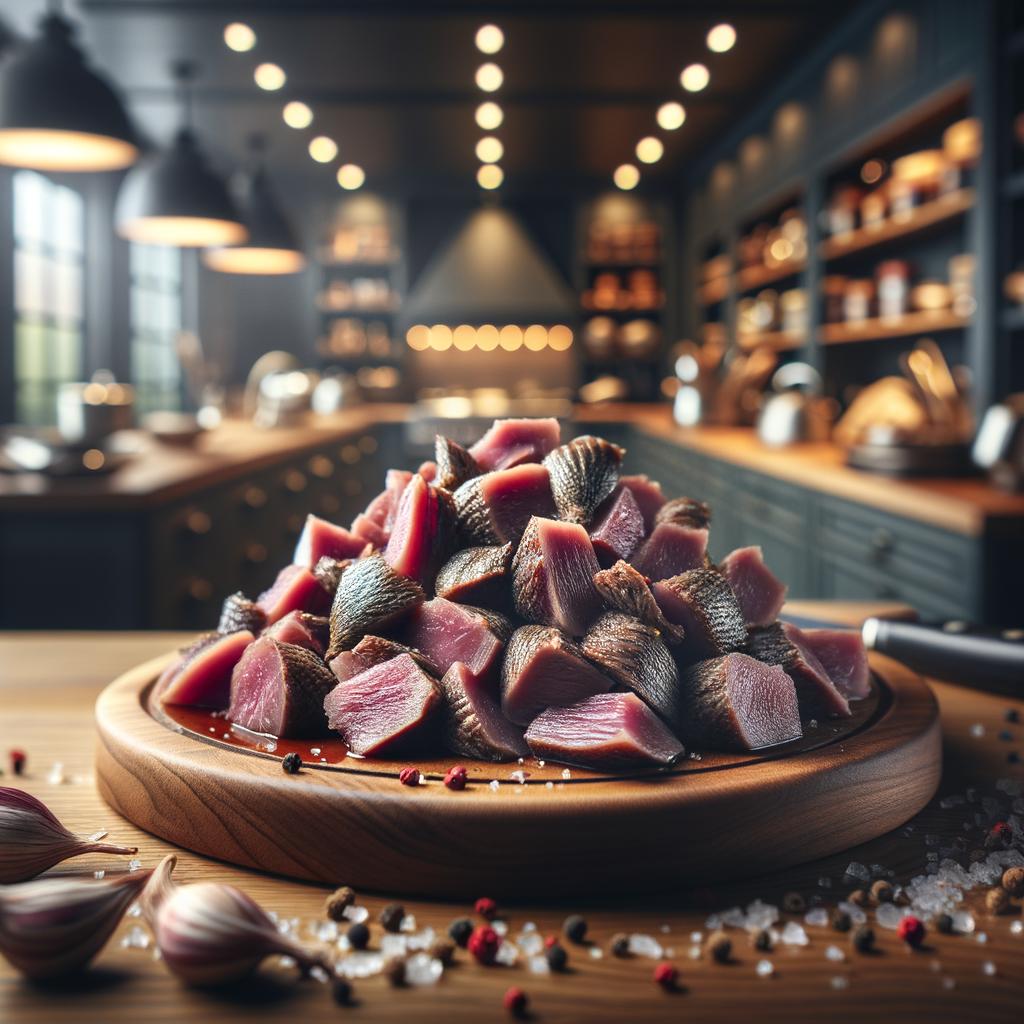Pigeon Meat

Description
Pigeon meat, also known as squab, is a culinary delicacy that has been savored by food connoisseurs for centuries. It is the meat derived from the tender, plump bodies of young pigeons, typically less than four weeks old. The meat is a rich, dark color, with a succulent texture that is finer and more tender than many other types of poultry. Its flavor profile is unique, offering a distinctive taste that is often described as a delightful blend of wild game and dark chicken, with a hint of sweetness.
What sets pigeon meat apart from other poultry is its rich, almost buttery texture and its ability to retain moisture even after being cooked. This quality makes it an excellent choice for a variety of cooking methods, from roasting to pan-searing.
Primary Uses
Pigeon meat is a versatile ingredient used in a multitude of cuisines around the world. In French cuisine, it's often roasted and served with a rich, reduced sauce. Chinese chefs have long prized squab for its flavor and often serve it roasted or braised. Moroccan cuisine features pigeon in a traditional dish called a pastilla, where the meat is encased in a flaky pastry with a blend of sweet and savory spices.
Beyond its culinary uses, pigeon meat has also been used for medicinal purposes in some cultures. In traditional Chinese medicine, it is believed to have cooling properties and is used to help treat heat-related ailments.
History
Pigeon meat has a long and storied history, dating back to ancient Egypt where pigeons were domesticated and bred for their meat. The Romans also prized pigeon meat, considering it a luxury food item. In medieval Europe, pigeon cotes were a common sight on manor houses, providing a steady supply of meat, particularly in the winter months.
The popularity of pigeon meat has waxed and waned over the centuries. In recent years, it has experienced a resurgence as chefs and food enthusiasts rediscover its unique flavor and texture. There's an old folklore that says a pigeon squab was one of the dishes served at the wedding feast of Charlemagne, the first Holy Roman Emperor.
Nutritional Information
Pigeon meat is highly nutritious, providing a rich source of protein, essential amino acids, and minerals like iron, zinc, and selenium. It also contains vitamins such as B6 and B12, which are vital for nerve function and the formation of red blood cells.
Compared to other poultry, pigeon meat is lower in fat and calories, making it a healthier alternative for those watching their diet. However, as with all meats, it should be consumed in moderation as part of a balanced diet. The consumption of pigeon meat also carries a lower environmental impact when compared to other meats, adding to its appeal for those seeking sustainable food choices.

